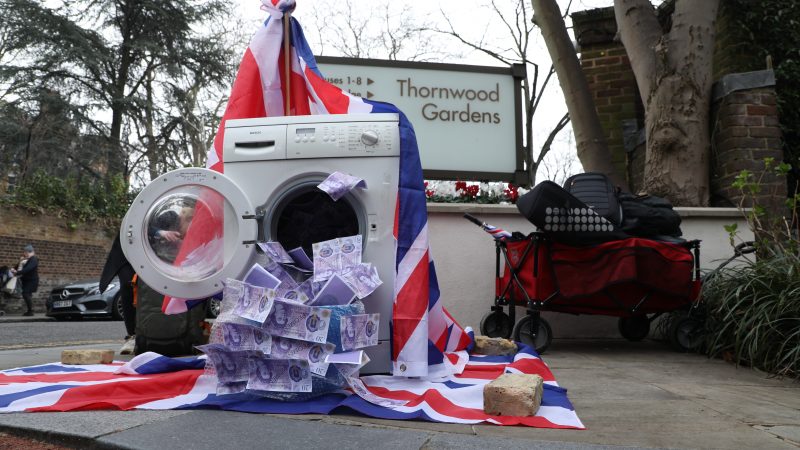
The tragic invasion of Ukraine has revealed to the world that Britain has a problem: an addiction to dirty money. For too long, crooks and kleptocrats have stashed their corrupt wealth here in the UK. And let us tell you, they do not come here for the weather.
Britain attracts illicit finance because of our weak regulation, our lack of transparency and our pathetic law enforcement. Wrongdoers bought entry to the UK with “golden visas” and employ our army of enablers – the bankers, accountants, advisers and more – who help them to hide their stolen wealth. But they need somewhere to spend that illicit cash and that’s why they turn to our real estate market.
The recent wave of Russian sanctions has finally put that luxury property under the microscope. Witness the recent decision to sanction Polina Kovaleva – step-daughter of Russian foreign minister and close Vladimir Putin ally Sergei Lavrov – who bought a £4.4m apartment near the Design Museum off Kensington High Street with cash at the tender age of 21.
Some of the oligarchs who have abused our property market are finally being held to account, yet there is much more to do to truly kick our dirty money habit. We must now seize the moment to make the changes to British law and culture that ensure we never again compromise our values for cash.
The government has promised to act, but they should be judged by their actions and not by their words. The recently passed Economic Crime Act is just a very small step towards tackling our dirty money problem. It improves transparency over who owns and controls property in our country, which will help investigators and campaigners to understand what assets have been purchased with corrupt funds. Unfortunately, the legislation has major loopholes and says nothing about how we can properly equip our law enforcement agencies for the fight against economic crime in Britain.
That is why we need grassroots pressure to ensure that the government does not stop at one piece of legislation. Ministers have promised a second economic crime bill early in parliament’s next session. That will need to plug the gaps in the first bill and chart a much more ambitious path to tackling corruption and money laundering in Britain.
This includes Companies House reform so they can expand their mandate to monitor, verify, and investigate suspicious companies. It also means increasing the budget for enforcement, as well as steps to prevent and deter the enablers that have profited off the back of dirty money for too long.
Just recently, tens of thousands of people marched in solidarity with Ukraine in London. The route snaked around Mayfair, one of the hot spots for Putin’s cronies to launder their money for decades. Grassroots groups like Kensington Against Dirty Money are showing that residents deserve better than living in the shadow of empty mansions bought to launder illicit wealth.
We now have just weeks to mobilise across the country to ensure MPs feel the pressure to act. In Kensington, this grassroots campaign is gathering momentum to say enough is enough to dirty money in the borough. This matters because over 6,000 properties in Kensington are registered to anonymous foreign shell companies. Many stand empty, while over 3,000 households are on the housing waiting list.
Meanwhile, Roman Abramovich’s £150m mansion on Kensington Palace Gardens is a stark symbol of the gross inequality that dirty money has accelerated in the borough. But Kensington is fighting back – and now we need others to follow.
In Woking, we want residents to raise their voices about Sutton Place, owned through shell companies by sanctioned oligarch Alisher Usmanov. In Westminster, the local community should be in uproar about Oleg Deripaska’s property in Belgrave Square. In Barnet, activists must oppose the multiple houses on The Bishops Avenue belonging to the families of oligarchs and autocrats.
Imagine if we had local anti-dirty money coalitions across London and the country to make sure local MPs truly represent their constituents’ views on this issue. Then we might have a genuinely ambitious second economic crime bill and truly start to get dirty money out of Britain.
It is not hyperbole to say the next few months will determine whether we can break Britain’s addiction to illicit finance. Kensington is the epicentre, but seizing this moment across the country will help to tackle inequality and housing shortages. It’s only by mobilising grassroots efforts now that we can generate the necessary political pressure to put our country on a better path.




More from LabourList
Turning the page? Labour’s recovery in the polls show a path to 2029 victory
Restoration announce recommendations for NEC candidates
‘Factionalism at the top is weakening Labour – and handing a gift to Reform’